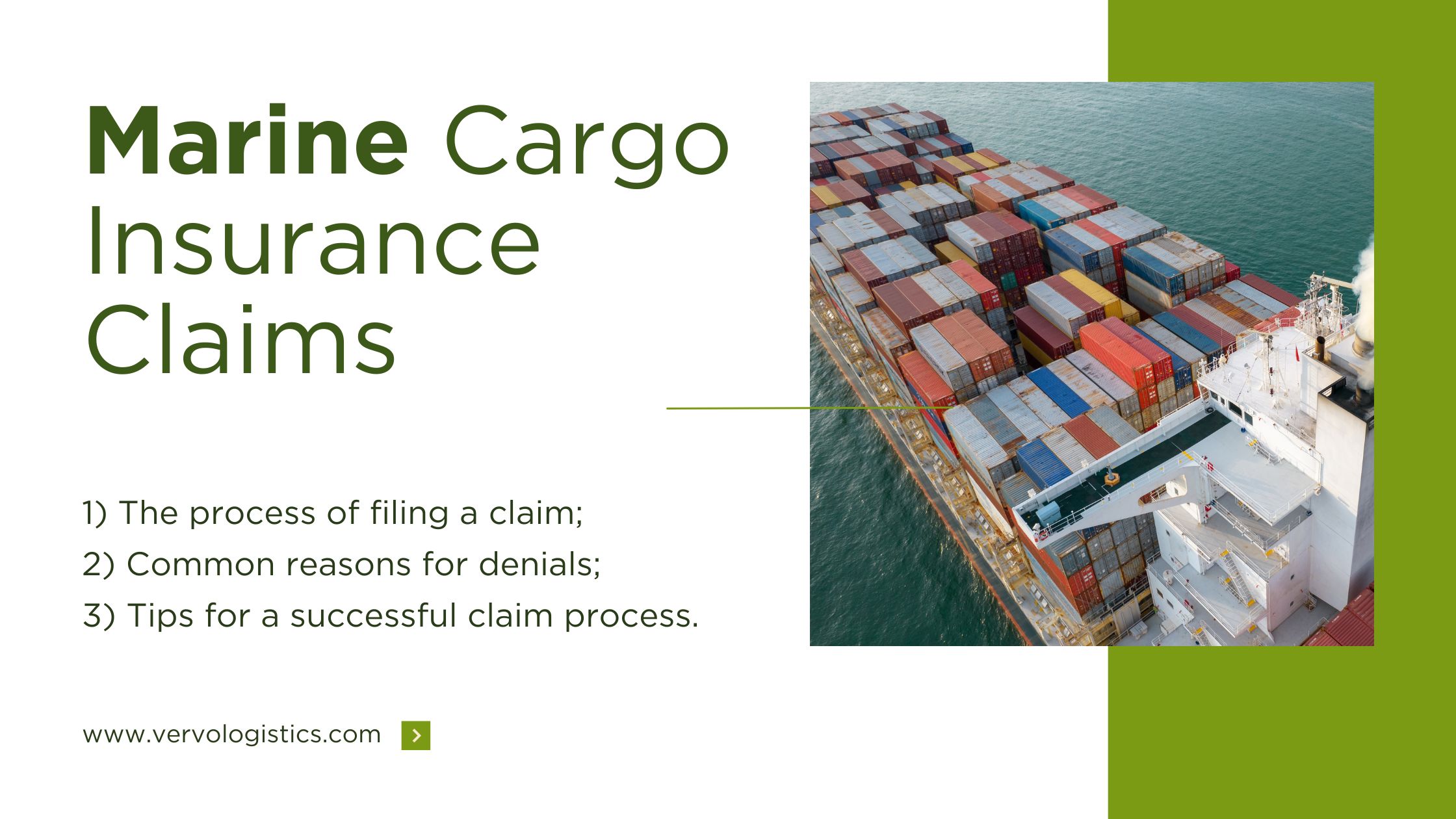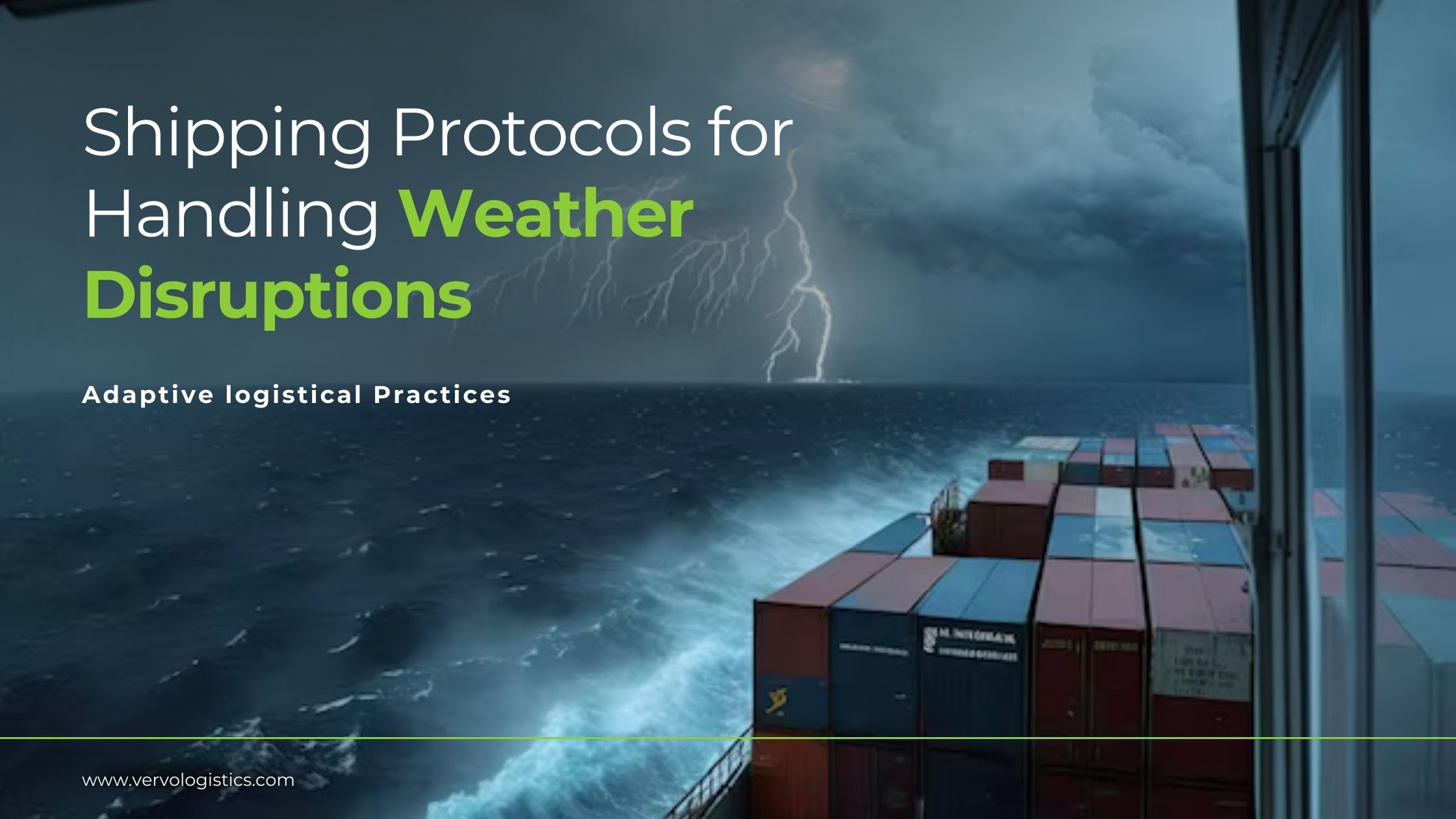In maritime shipping, the safety of cargo transported across the globe's blue expanses is not guaranteed by the sturdiness of ships alone. That is why marine insurance stands as the first line of defense against the unpredictable.
Yet, when the time comes to file a claim, many find themselves in uncharted waters. The process of filing a claim is straightforward but detail-oriented and requires attention to policy specifics and language, deadlines, and procedural accuracy. Meanwhile, claim denials can surface, grounded in reasons like improper packaging or inadequate insurance coverage.
In this article:
1) The process of filing a claim.
2) Common reasons for denials.
3) Tips for successful claim resolution.
What Is Marine Insurance?
Marine insurance is a specialized type of coverage designed to protect the cargo in transit during transport over sea, air, and land.
Marine insurance safeguards goods from the risks of transit, and its coverage can extend beyond cargo in transit to include related risks throughout the entire supply chain. These risks are not typically covered by standard carrier liability.
Risks can include loss, damage, or theft due to any reason, like loading and unloading accidents, shortages and non-delivery, damage during port stays or inland transit, acts of God, errors of navigation, and more!
At its core, marine insurance is about transferring the risk from the owner of the goods to the insurance company. Marine insurance policies are designed to be flexible and can be tailored to cover a wide spectrum of goods. While the term 'marine' implies oceanic travel, the policies have evolved and the coverage has extended to cover all transportation modes and different scopes, like “from warehouse to warehouse" or “from door to door,” providing a customizable financial shield.
The different types of coverage can include an "all-risk" policy for comprehensive protection or a more restricted "named perils" policy, depending on your assessment of the risks your cargo might face. The insurance typically covers the cargo for its full commercial value and can also include the cost of shipping plus a percentage to cover potential profits lost.
As we delve deeper into the intricacies of marine insurance claims, remember that the right coverage is not just about having a policy in place—it's about understanding and choosing the coverage that aligns with your logistic needs and commercial objectives, so in the times of filing claims, you get it done the right way.
The Comprehensive Process of Filing a Marine Insurance Claim
| Phase | Actions |
|---|---|
|
Before Shipment |
|
|
Upon Shipment |
|
|
Upon Intimation of Loss or Damage |
Step 1: Notification and Preliminary Actions
Step 2: Claim Documentation:
Step 3: On-Site Actions:
Step 4: Filing Initial Notices:
|
|
Post-Intimation Actions |
Step 5: Detailed Documentation Collection
Step 6: Survey Report and Claim Filing
Step 7: Customs and Other Claims
Step 8: Salvage and Recovery Actions
|
|
Final Steps |
Step 9: Submission and Follow-Up
Step 10: Claim Resolution
|
Common Reasons For Denials.
Common reasons for claim denials often stem from issues related to documentation, policy terms, and the nature of the cargo loss or damage.
✅ Inadequate documentation: If you fail to provide a complete set of documents, such as the bill of lading, commercial invoice, packing list, and a detailed survey report, the claim may be denied. Also, if the paperwork submitted is inaccurate or contains inconsistencies, it can raise red flags, leading to a refusal.
✅Misinterpretation of Coverage Terms: Some policyholders may misunderstand the scope of their "all-risks" coverage. Some marine insurance policies, while comprehensive, do not cover each and every conceivable peril. Claims that fall outside the specifically agreed-upon terms will be denied.
✅ Exclusion clauses in the insurance policy: Every marine insurance policy comes with specific exclusions that delineate scenarios where coverage is not provided. Common exclusions include damages due to inherent vice, delay, or losses resulting from insufficient packaging, all of which are often overlooked by policyholders
✅ Under-Insurance and Deductibles: If the declared value of the goods is less than their actual value, a condition known as under-insurance, claims can be proportionally reduced or denied. Furthermore, policyholders sometimes overlook the deductible amounts, leading to disputes when the claim is for an amount less than the deductible.
✅ Improper packing or late notifications: Improper packing falls under the shipper's responsibility. This extends to incorrect labeling or stowage, which can lead to damages that the insurance company is not liable for. Similarly, timely communication following a loss is critical; delays can compromise the ability to assess damages accurately, thus giving insurers grounds for denial.
Tips For Successful Claim Resolution.
The process of filing marine insurance claims requires strategic foresight and meticulous attention to detail. To enhance the likelihood of a successful claim process, consider the following advanced tips:
Marine Insurance Services in the UAE and Globally
At Vervo Middle East, our team of expert logistics specialists acts tirelessly on behalf of you.
We partner with highly reputable independent insurance partners in the UAE and worldwide to offer the most convenient marine insurance policy services in the heart of the UAE and beyond.
We ensure that each detail is meticulously managed to secure your interests. With over 300,000 cargoes performed, our global team prides itself on offering comprehensive marine insurance coverage, crafted to meet the dynamic needs of different cargo types.
Request your FREE quote today!
🌐Request A Free Quote
☎ +971508723352
📧




